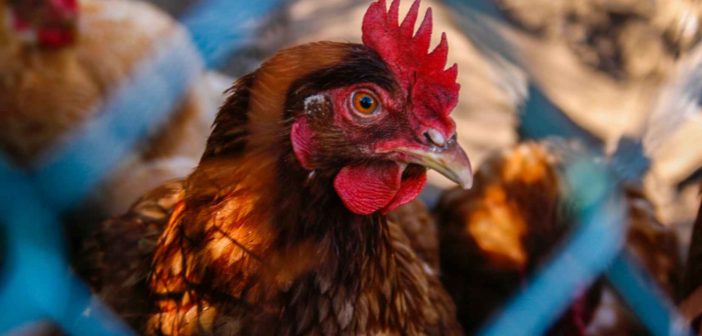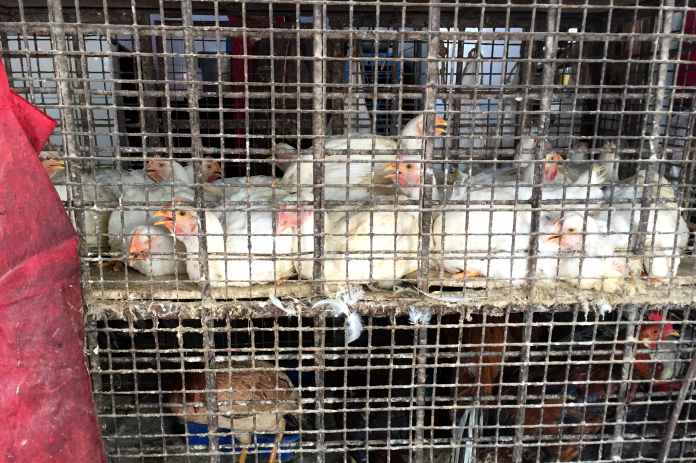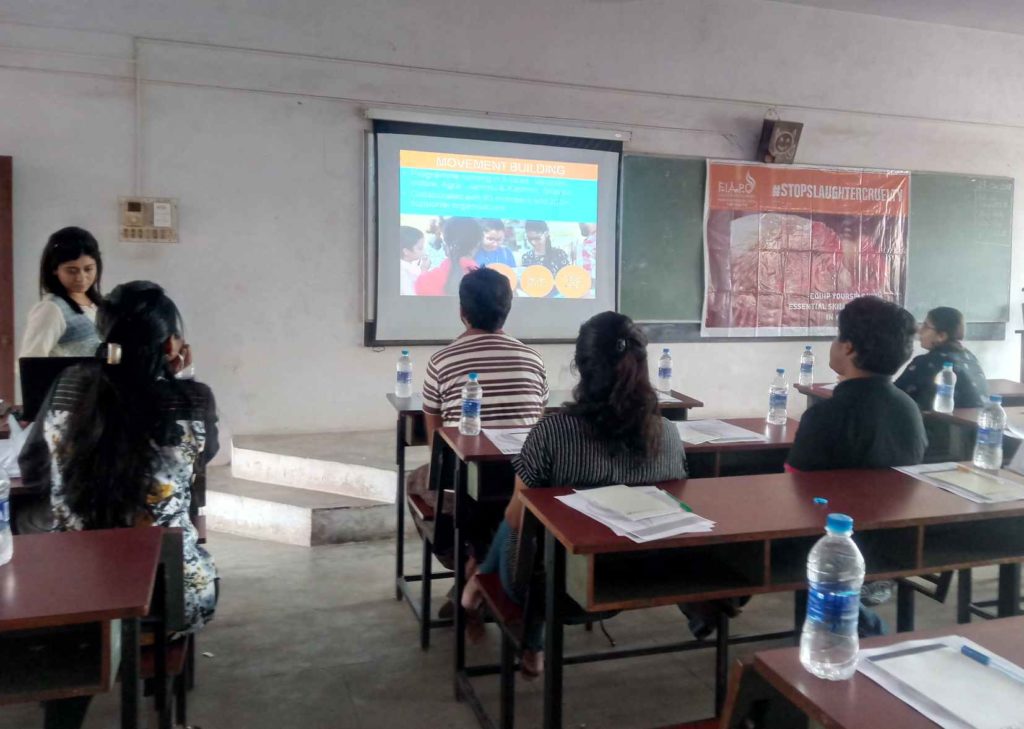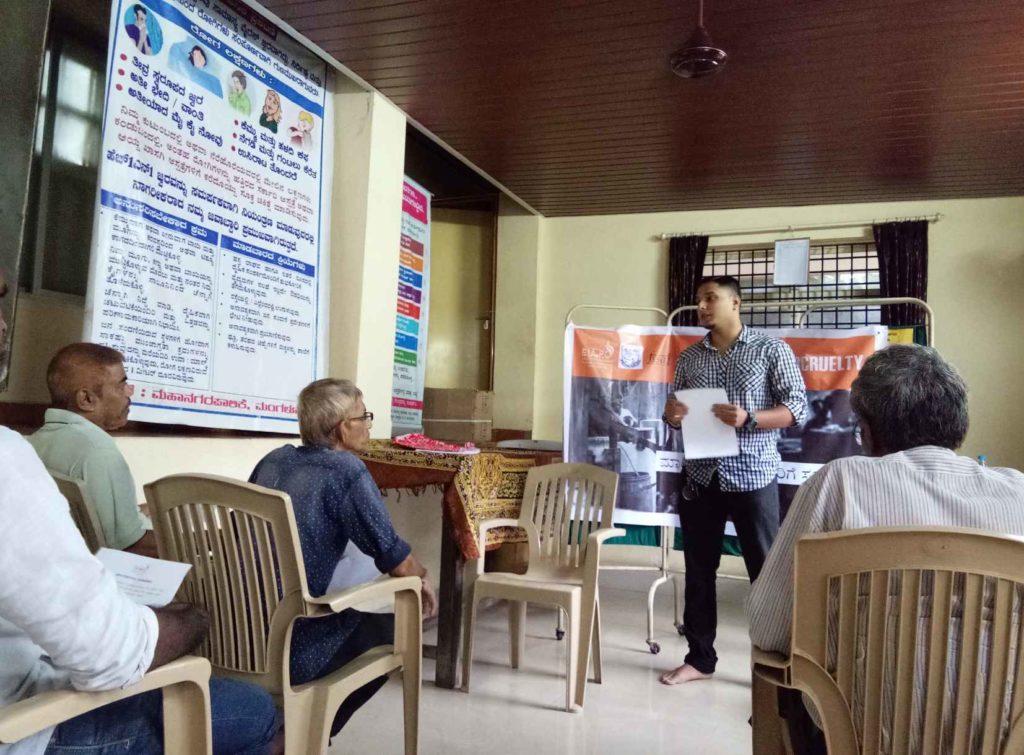Background: the shameful “normal” lives of animals raised for slaughter
Thousands of animals are slaughtered illegally every day in India with unchecked cruelty. Animals brought for slaughter are often suffocated by a lack of space and stagnant air and injured by the horns of beaks of animals crammed against each other. They are often deprived of food and water. Most of this trade is conducted illegally. Animals are sold to people who have no license to operate a business, let alone a slaughterhouse.
The vision of Federation of Indian Animal Protection Organization’s (FIAPO) Stop Slaughter Cruelty campaign is to end the illegal slaughter trade in India. Our strategy is to create awareness and achieve reforms, using the strength of local organisations and animal protection activists, food business regulators, residents’ associations, pollution control boards, and health and nature clubs to break the chain of institutionalized cruelty in transport, housing, and slaughter of animals.
We work with two main government authorities that regulate meat shops, the local Municipal Corporation and the Department of Food Safety and Standards. Working with these two authorities, we set up interventions that systematically shut down illegal shops while bringing about legislative reform when possible.
Mangalore: meat market inspection exposes animal cruelty
On June 14, 2018, FIAPO’s local activists conducted an inspection in meat markets in the city of Mangalore. They witnessed the horrifying conditions in which animals were kept. Most of the shops were unregulated, and harmed animals with impunity, denying them access even to food and water. The birds were stuffed into cages stacked in open sun and rain. They did not have the space to turn around, and sometimes they could barely breathe.
Slaughtering animals in the open was a common sight. These shops were often operating without valid licenses, with little or no regard for the law. The meat vendors were ignorant or defiant of basic hygiene and health standards. The shops openly dumped animal carcasses and had very poor drainage systems, as the markets were set up in run down quarters, unimproved since the colonial period.
FIAPO’s efforts to change conditions for birds and other animals
For eight months, FIAPO made continuous efforts to train local citizens to investigate conditions at meat shops and report violators to local regulatory authorities. We have collaborated with the Mangalore Municipal Corporation in counselling 100 meat traders. Eight workshops and many investigations were conducted by local volunteers.
FIAPO is relieved to see the beginning of changes in animals’ conditions. There is a long road ahead, but meat shops have begun to improve through our Stop Slaughter Cruelty work in Mangalore. The animals’ tortured lives have become measurably better. When they are suffering, every minute and every hour is long. With the support of local activists and regulatory authorities, we were able to improve the animals’ short lives while working towards a reduction and eventual elimination of the illegal slaughter trade.
In an inspection conducted in February 2019, it was revealed that the shop owners have become more aware of the idea that suffering is unacceptable. Some of them now provide shaded shelters and access to food and water at all times. Open slaughter has been curtailed. The city corporation has demolished most of the old markets and built new markets for meat shops where the infrastructure allows some shade and air circulation. Though the changes are minimal, the relief for the birds has been significant.
Images: improved conditions in Mangalore meat shops
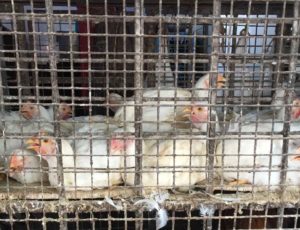
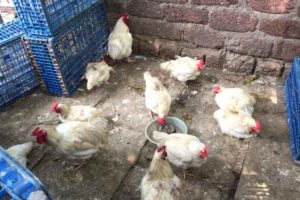 Before: birds stuffed in cages beyond capacity without access to food or water. After: open spaces created for bird to be able to move around, with food and water provided.
Before: birds stuffed in cages beyond capacity without access to food or water. After: open spaces created for bird to be able to move around, with food and water provided.
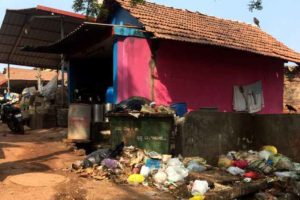
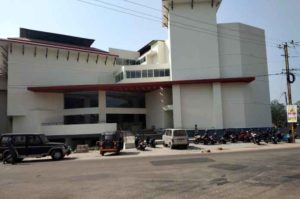 Before: open dumping area at the back of the meat market. After: newly built market with cleaner premises and no open dumping grounds.
Before: open dumping area at the back of the meat market. After: newly built market with cleaner premises and no open dumping grounds.
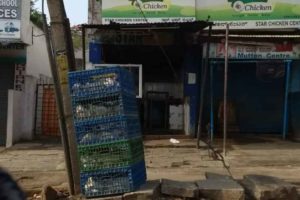
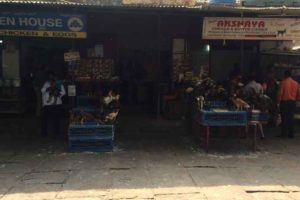 Before: birds stacked in cages and kept out in the sun. After: birds kept in shade, away from sun and rain.
Before: birds stacked in cages and kept out in the sun. After: birds kept in shade, away from sun and rain.
Local activist Tauseef Ahmed shares, “The birds in these markets were kept in such small and cramped cages that they were not even able to shift a wing, but now they are kept with space to move around and also let out into open spaces. The practice of slaughtering in front of the other living birds is something that I do not see going on anymore. The butchers even get their health checked now under the supervision of the Mangalore Municipal Corporation.”
These improved conditions have also led to better waste disposal and created a cleaner environment for residents.
The way forward
FIAPO is now focused on sustaining the improved conditions of birds and other animals in Mangalore through community engagement activities, where we will mobilize volunteers to meet with resident welfare associations and communities located near these improved meat shops. We will raise their awareness about the needs of animals exploited in the meat trade in order to generate sensitivity and develop a vigilance network to track violations so that these improvements are maintained. An educated community that engages with local authorities holds the key to insuring that the lives of these animals are improved.
Click here for a pdf version of this report.
Featured image: a chicken in a meat shop. This multipart intiative by FIAPO has reduced suffering for birds in Mangalore, India in measurable ways. This image and all images in this story credited to FIAPO.

